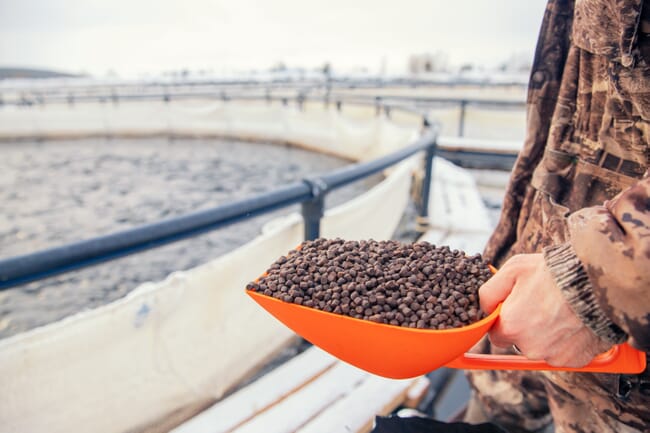
The two organisations have agreed to combine dsm-firmenich’s lifecycle assessment (LCA) platform, called Sustell, with Allix’s feed formulation software to reduce the environmental footprint of feed.
Using Sustell, Allix is developing a dedicated sustainability module that will enable users to gather insights on the environmental impact of their feeds. Users will be able to automatically ingest their data into Sustell while formulating in the Allix environment. The module will be available as an add-on to the Allix subscription.
As dsm-firmenich’s David Nickell said in a press release: “Feed is a vital component in the food value chain and by combining the innovative Sustell platform with Allix’s established feed formulation software, we are unifying our joint commitment to developing the entire farm-to-fork data ecosystem. Sustell‘s LCA footprinting platform is essential throughout the value chain to address sustainability challenges and unlocking significant value.”
Bruno Duranthon, from A-Systems, added: “We are proud to partner Allix’s feed formulation software with Sustell to revolutionise the way our users measure and manage their environmental footprint in feed production. Our partnership will contribute to a more sustainable future in feed and food, whilst providing benefits for our customers who are determined to meet sustainable practices.”
The integration, which is expected to be finalised later this year, also marks a step forward for full value chain transparency, helping feed producers, farmers, processors, food companies and retailers to accurately report their emissions and advance their sustainable practices.


